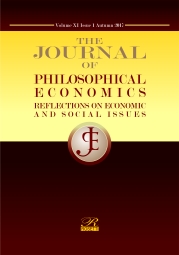Research note on an experimental approach to the intrinsic motivations of corruption
Research note on an experimental approach to the intrinsic motivations of corruption
Author(s): Valeria BurdeaSubject(s): Philosophy, Social Sciences, Economy, Special Branches of Philosophy, Sociology, Philosophy of Science, Social Theory, Socio-Economic Research
Published by: Editura Rosetti International
Keywords: laboratory experiment; trust; game design;
Summary/Abstract: Even though most of the causes of corruption are easily identifiable at the macro level, there is considerable disagreement when it comes to the intrinsic motivations leading people to engage in this activity. The present paper tries to shed light on the aspect concerning the correlation between corruption and individual performance. This is useful for understanding the dynamics of common events like medical students attempting to bribe their way towards becoming a doctor, or companies bribing public officials to obtain licenses to build public highways, buildings, or provide electricity and water. However, corruption’s secretive nature makes it difficult to obtain trustworthy qualitative data on this subject. Hence, the study addresses the issue in the lab, through an experiment based on a bribery game. The results show that there is a significant correlation between performance and propensity to engage in a corrupt activity, opening the way for an improvement in the allocation of resources to reduce this negative phenomenon.
Journal: Journal of Philosophical Economics
- Issue Year: VII/2013
- Issue No: 1
- Page Range: 2-37
- Page Count: 36
- Language: English

